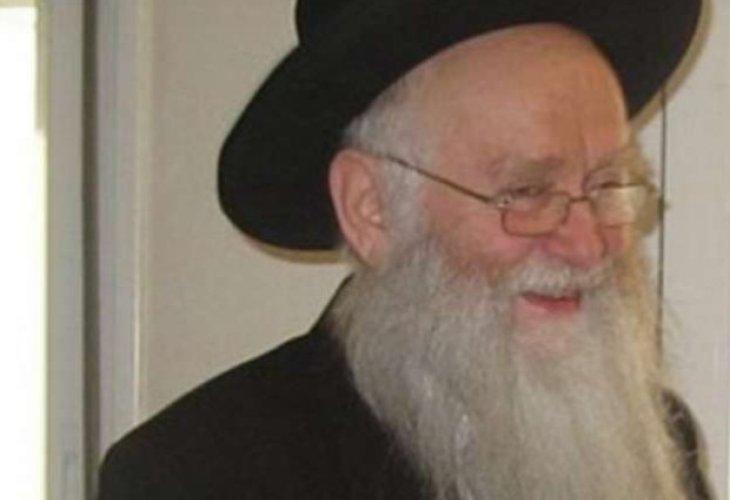Torah Personalities
A Quiet Giant: The Life and Legacy of Rabbi Rafael Shmuelevitz
Nine years after his passing, stories of humility, kindness, and Torah devotion continue to illuminate his greatness
 Rabbi Raphael Shmuelevitz
Rabbi Raphael ShmuelevitzThis Friday marks nine years since the passing of Rabbi Rafael Shmuelevitz, a leading Rosh Yeshiva of the Mir Yeshiva in Jerusalem and a senior editor of the Encyclopedia Talmudit. Known for his gentle demeanor, humility, and deep empathy, he lived a life of quiet greatness, full of acts that reflected his unwavering values.
A Life Shaped by Exile and Torah
Rabbi Rafael Shmuelevitz was born during World War II to Rabbi Chaim Shmuelevitz, then head of the Mir Yeshiva. Along with his family and fellow yeshiva students, he escaped the Nazis by fleeing to Vilna and then crossing the Soviet Union on the Trans-Siberian Railway. Thanks to Japanese visas issued by diplomat Chiune Sugihara, they arrived in Japan and later were exiled to Shanghai, which was under Japanese occupation. After the war, the family reached the U.S. and eventually settled in Jerusalem.
Following his father's passing, Rabbi Rafael served as Rosh Yeshiva of Mir alongside Rabbi Nachum Partzovitz and later with Rabbi Nosson Tzvi Finkel. He delivered two weekly shiurim (Torah lectures), one in Yiddish and one in Hebrew. Even after being diagnosed with ALS, he accepted his suffering with love, embodying the phrase “grief in the heart, joy on the face.”
Stories of Integrity, Empathy, and Grace
His humility and character shone through in countless daily interactions:
When selling his home, he gave the buyer a full list of its flaws in writing, even after the buyer said he was fully aware and still interested.
In another case, when a seller backed out of a signed deal, Rabbi Shmuelevitz refused to accept full legal compensation, saying: “If a Jew regrets a sale, should I take money from him?”
Rabbi Yosef Shalom Elyashiv once defined the modern-day talmid chacham (Torah scholar) as “Rabbi Rafael Shmuelevitz.”
When criticized for changing a lightbulb instead of letting his son do it, he responded: “I teach my children that whatever I can do myself, I should do myself.”
At a parent-teacher meeting, he waited in line like everyone else and insisted on listening to the teacher’s input rather than offering his own.
When a man sought advice about a neighbor, a lonely widow upset by the children’s noise, Rabbi Shmuelevitz began weeping over her pain. He advised buying rubber stoppers to muffle the sound and suggested inviting her for Shabbat meals. The solution worked.
On one occasion, a young man who was about to get married met with a local rabbi to learn about the laws of marriage. As they sat there together, they saw Rabbi Shmuelevitz hanging laundry in the adjacent garden. The rabbi said to the groom: "I won't say a word. Just look at that." It was a lesson that spoke louder than a thousand words.
A True Rosh Yeshiva at Home and in the World
His sense of respect for others was as natural as his Torah. When asked why he didn’t attend the earliest selichot (petitional prayers) minyan before Rosh Hashanah, he said: “If I do, I’ll need to rest afterward, and I can’t rest while my wife is working hard for the holiday.”
One Shabbat morning, the week before his nephew got married, he sat in a seat of honor in the synagogue in honor of the occasion. When asked later why he didn’t do the same at another family celebration, he answered simply: “The first time the groom was an orphan, and I wanted him to feel the family’s joy.”
When the baal toke’a (shofar blower) failed to produce a sound on Rosh Hashanah and was visibly distraught, Rabbi Shmuelevitz wept, not over the missed blasts, but over the man’s anguish. “Do you think Hashem needs the blasts?” he asked. “He wants the broken hearts.”
Even in illness, he stood to honor an elderly guest at an engagement, explaining, “A man his age expects to be respected.” Once, in sweltering heat, he was scheduled to officiate at a wedding in Bnei Brak. Seeing a younger rabbi who was also a rabbinical judge present, he immediately stepped aside, asking the family to honor the younger man instead, and quietly returned to Jerusalem.
And on one Shabbat evening, with grandchildren and his elderly mother in his home, he waited a full hour to make kiddush until she awoke. He refused to begin the meal without her.
In every small act and quiet decision, Rabbi Rafael Shmuelevitz revealed a towering inner world built on humility, kindness, and unwavering devotion to Torah and other Jews.

